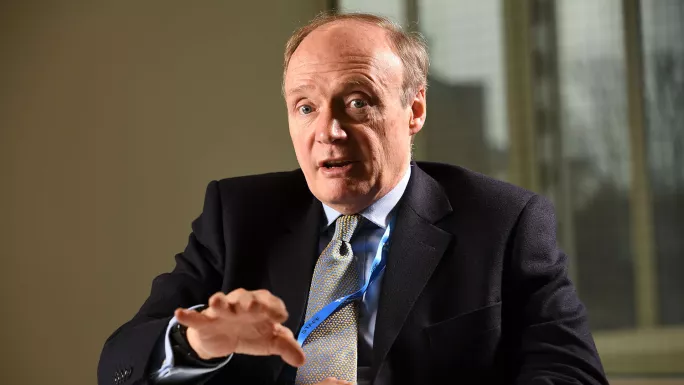Students in rural areas are likely to have less access to T levels than those in cities, the CEO of the Institute for Apprenticeships and Technical Education has acknowledged.
Industry placements of at least 45 working days are a compulsory element of the flagship new technical qualifications, the first of which are due to be introduced in 2020.
But Sir Gerry Berragan told Tes that as a result of this, the number of T-level subjects available to students will be limited by the range of employers in the local vicinity which can offer work experience placements.
“I think there will definitely be some colleges that are going to be able to offer more T levels than others,” he said. “If you’re in a major conurbation with a whole mix of employers, you’re likely to be able to offer a wider range of T levels because you’ll have easier access to the work placements.
'Geographic by nature'
“That said, I have to say - and I’ve been up to some of these more remote places like Lincolnshire - those colleges are so tied into the local economy, they are so geared up to local employers, they may offer a narrower range of T levels, but the ones they offer will be good ones, because they already work with those employers… Because it’s geographic by nature, it will depend on what the employer situation in the local area.”
While rolling out the full suite of T-level subjects is set to take four years, Sir Gerry said it would “probably be 10 years before you see an accurate reflection of what the demand is like for these things.”
At the Employment and Skills Convention in July 218, it emerged that the Department for Environment, Food and Rural Affairs had been asked to help resolve the issue of how to offer placements for students living in rural areas.
T levels 'bang on track'
In May 2018, education secretary Damian Hinds rejected a one-year delay to the implementation of the new T-level qualifications put forward by the Department for Education’s permanent secretary Jonathan Slater.
Sir Gerry said that while the timescale was a “challenge”, the process was currently “bang on track”.
“I think everyone recognises that it’s going to be a challenge, and the timescale for wave 1 is tight,” he said. “But we’re bang on track. There’s still plenty to do, but at this stage in the game it’s looking good.”
Invitation to tender
The winners of the tendering process for running the first wave of T levels are due to be informed this week, with a formal announcement expected later this month.
The invitation for tender for the second wave of subjects is expected to be published in “late March or early April”, Sir Gerry added, “with a view to awarding the contracts in September”.
The Institute for Apprenticeships last week saw its remit expand to incorporate technical education. Sir Gerry told Tes that its workforce had expanded from 86 people last summer to nearly 150, and would continue to grow to around 200 by the end of 2019. The staff will be split across the institute’s offices in London and Coventry.





